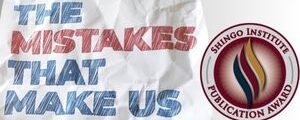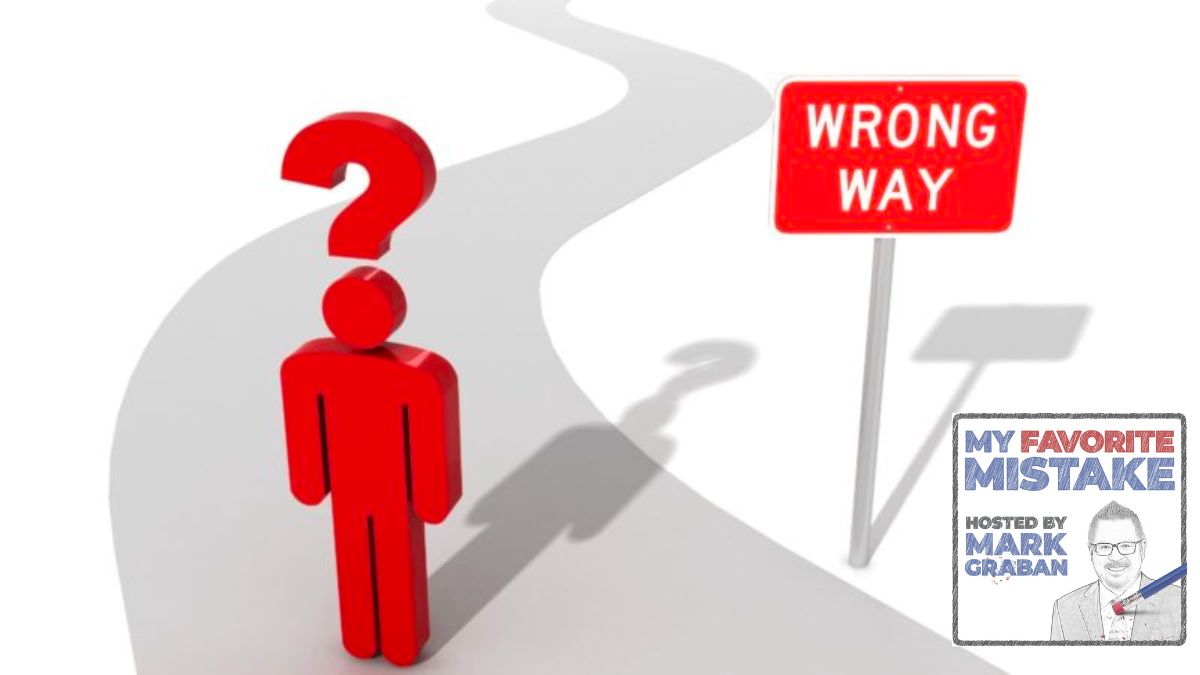What follows in this post is material that was cut from earlier drafts of my book, The Mistakes That Make Us: Cultivating a Culture of Learning and Innovation.
When we think about a small test of change, we consciously expect the possibility of being wrong. Many organizations think about implementing solutions as a fixed, linear path. We have an idea; we implement it. Toyota is one example of a company that fully embraces the mindset of “Plan, Do, Study, Adjust” or PDSA. We don’t just plan, do, and assume our idea is a good one that will work out as expected. PDSA is a cycle or a series of cycles that move us closer to our goal.
Taiichi Ohno, one of the creators of the famed Toyota Production System, wrote:
“It is not good if you hold on to your ideas too strongly and try stubbornly to justify them. We are all human, and we are wrong half of the time.”
It would be a mistake to take the word “half” literally in that last sentence. We don’t know that we’re wrong half the time or even close to that. But we certainly have two possibilities every time we make a decision: we could be right, we could be wrong — or something in between. Assuming we are right is far more dangerous than knowing we could be wrong.
As I write this book, I think it will turn out to be interesting and helpful to people. I don’t know this. I could be wrong. Expecting to make mistakes means using automated spellcheck and grammar check tools. It also leads me to get input from an editor and a proofreader who can (hopefully) fix mistakes in both planning and execution.
Part of my strategy is to get early input from many different readers. I’m looking for constructive criticism to fix mistakes early before the book gets released. Authors and entrepreneurs need to make sure they seek honest feedback and not just validation and praise from families and friends.
Realize We Don’t Know What We Don’t Know
Simon T. Bailey’s favorite mistake ended his career as an executive at Disney. He was too honest with a reporter in saying he aspired to be CEO of the company. Simon violated company policy by not getting permission to speak with the reporter who called his office.
His Disney career was over, but it launched Simon on a new path as a speaker, coach, and author. In his quest to help others, Simon has learned that he needed to admit, “I don’t know what I don’t know.” He also learned that we need to “release the need to be right.”
Drop Your Ego, Learn From Small Mistakes
Anthony Trucks is a former professional American football player turned entrepreneur, author, and speaker. His favorite mistake was opening up a gym after his football career ended. He was “naive” and struggled to pay rent in the first few months. Instead of declaring bankruptcy and moving on, he hired a coach who broke his ego so he could be ready to learn, improve, and succeed.
“When you drop your ego, past mistakes, flaws, and fear of failure, you can find your internal fire to catapult you into the life you want and deserve.” – Anthony Trucks
When he was an athlete, playing at a very high level at the University of Oregon, Anthony recalls:
“I know I’m going to get yelled at every practice, every game. I can’t be perfect. And none of us are perfect. So if I predict the fact that I’m going to fail and not do perfectly, it’s actually good.”
He learned to actively look for “the holes in the bucket”’ or small failures that would prompt him to ask, “What can I do better?” At this level, “no failure is a failure; it’s just genuinely a lesson.”
Grow a Growth Mindset
Anthony reminds me of Carol Dweck’s important work on “growth mindset.” A person with a “fixed mindset” thinks that talents and traits are fixed and that they are inherent (or they’re missing) and can’t be improved or developed. That might sound silly if you’re a growth mindset person, but Dweck has found that as many as 40% of students have a “fixed mindset,” and most adults have some qualities of one.
It’s a mistake (and ironic) to think that one is born with a growth mindset. How can we grow into a growth mindset where we view “intelligence, abilities, and talents as learnable and capable of improvement through effort”? The people who shared their” favorite mistake” stories all seem to have a highly-developed sense of growth mindset, which is still growing as they continue to learn from mistakes.
As Rachell Kitchen, an engineer and coach, says,
“We want to be living in a growth mindset and growing in our lives and careers. And so growth requires us to move outside of our comfort zone.”
When we’re out of our comfort zone, doing new things, we’re more likely to make mistakes — which means more learning. We learn if we’re open to it. We’re more likely to learn in an environment that makes it safe to learn from mistakes, as we’ll discuss later in Chapter X.
“If you don’t make mistakes, you aren’t really trying.” – Coleman Hawkins, American Jazz Saxophonist (1904 – 1969)



